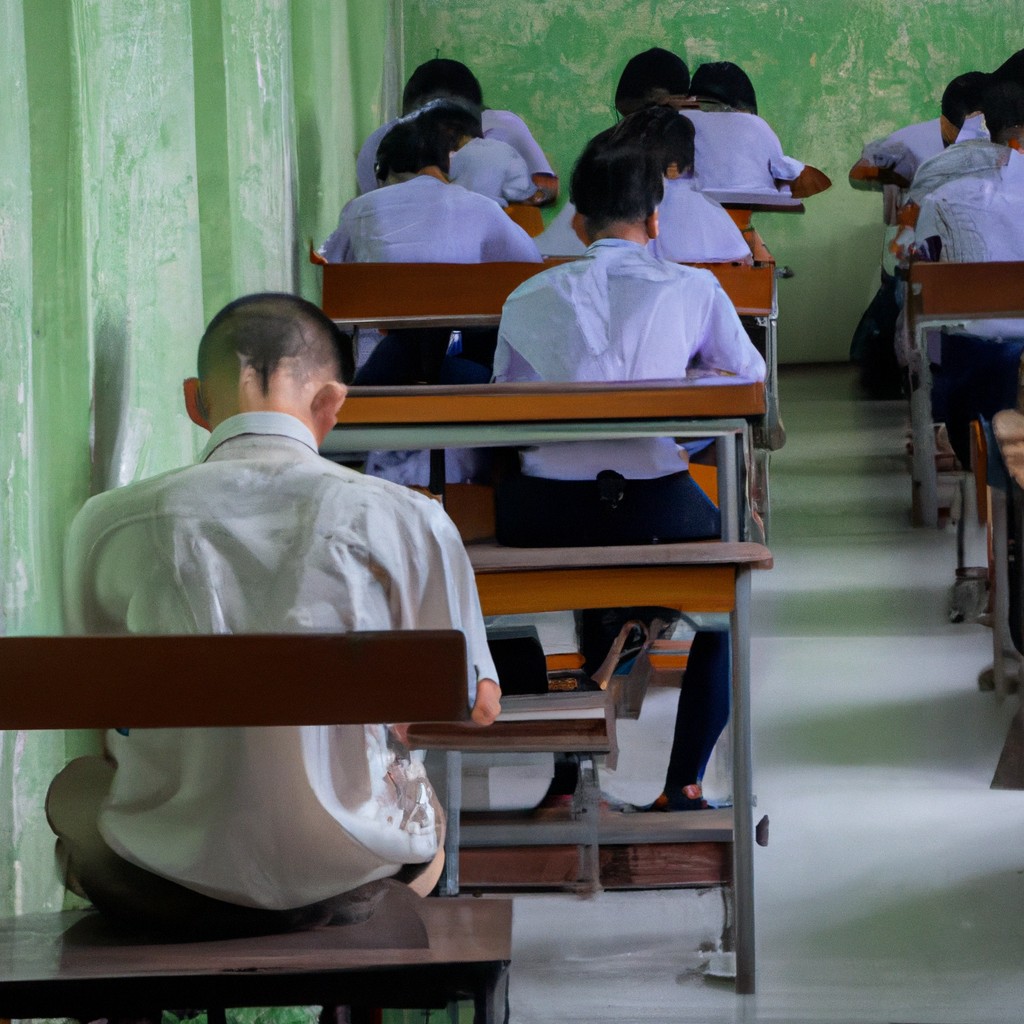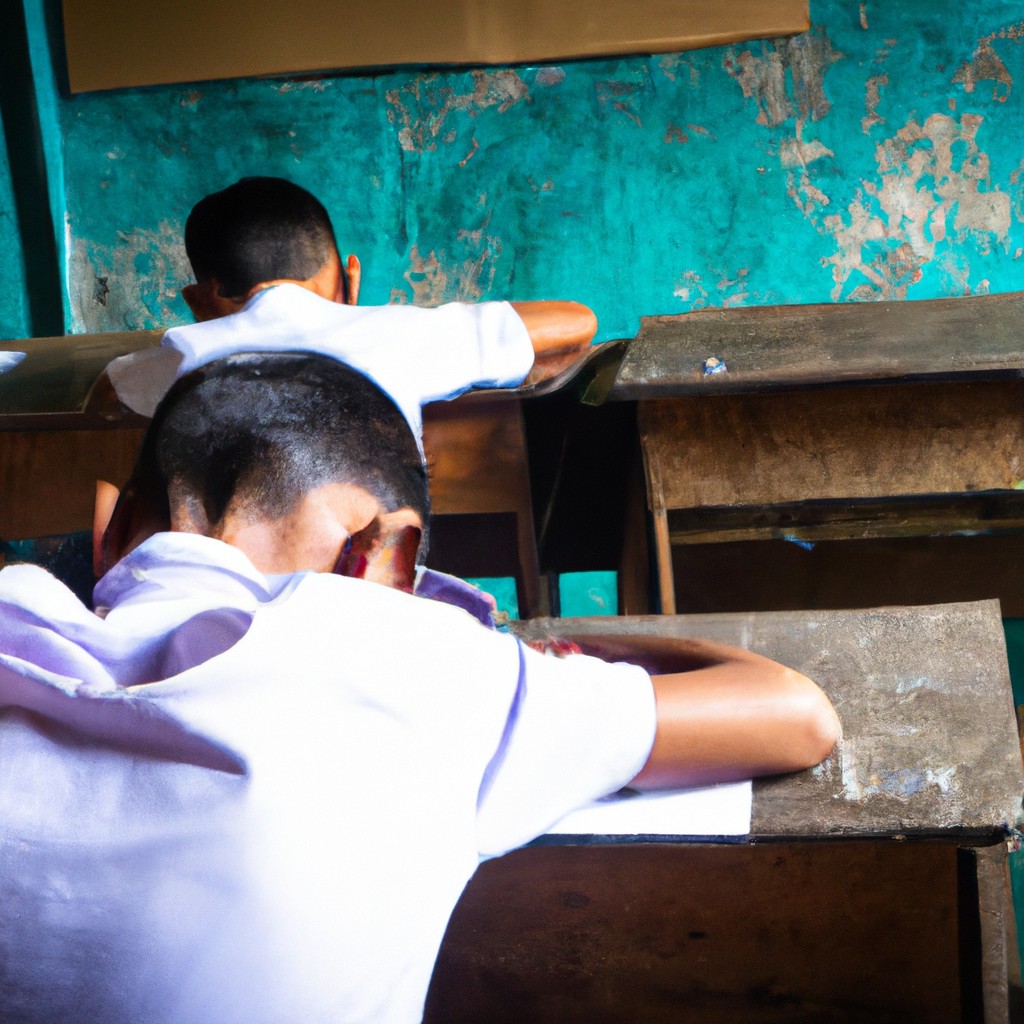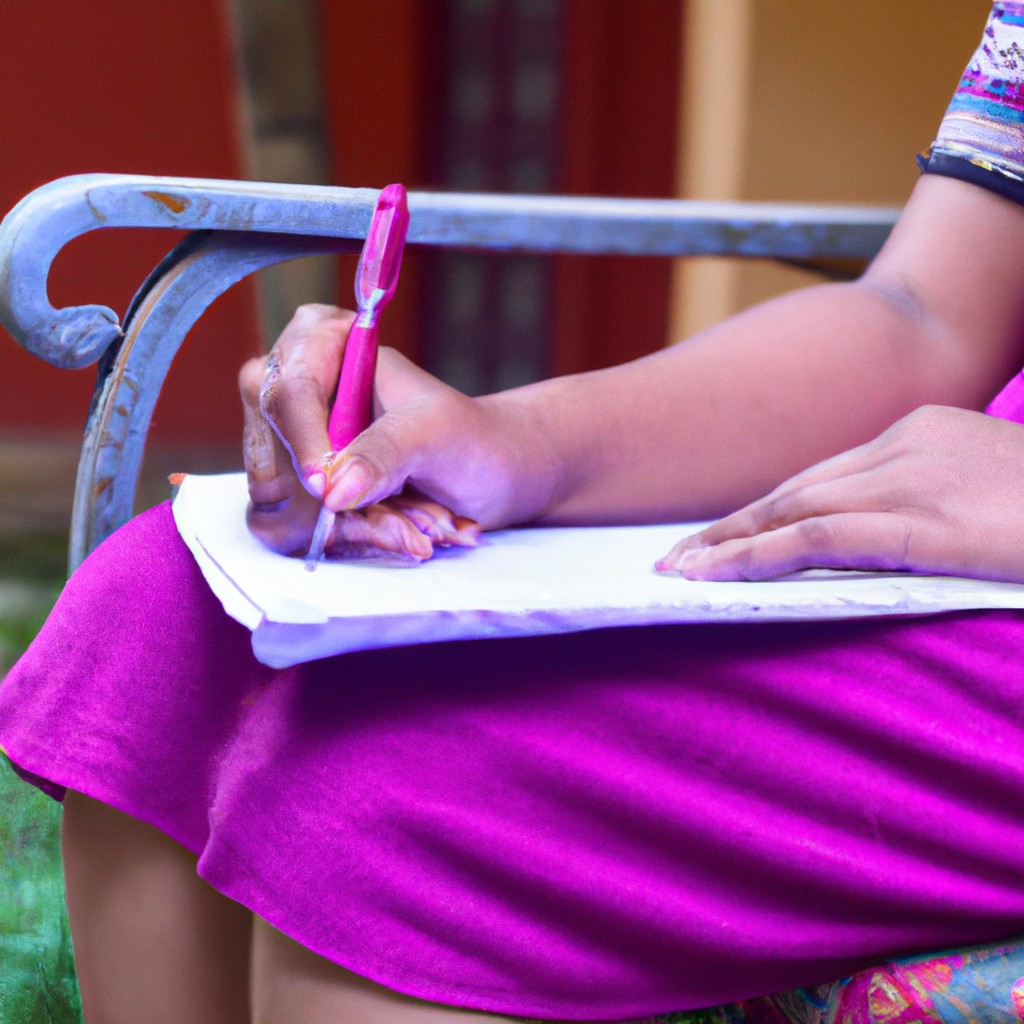Poverty and health

Poverty and health are deeply intertwined, with poverty often leading to poor health outcomes. Lack of access to clean water, nutritious food, and proper sanitation facilities jeopardizes health. Limited financial resources can prevent individuals from seeking necessary medical care, resulting in untreated conditions. Stress and anxiety stemming from poverty can also impact mental health adversely. Furthermore, poverty can restrict educational opportunities, reducing knowledge and awareness about harmful health behaviors. Children growing up in poverty are particularly vulnerable, facing higher rates of malnutrition and developmental delays. Breaking the cycle of poverty is crucial for improving health outcomes and ensuring a better future for individuals and communities.
Read more
Poverty and education

Poverty has a profound impact on education, trapping countless children in a cycle of limited opportunities. Scarcity of resources deprives them of access to quality schools and necessary materials. Furthermore, poverty can create unstable living conditions that hinder focus and disrupt learning. Children from impoverished backgrounds often face food insecurity and inadequate healthcare, affecting their ability to concentrate and excel academically. Moreover, the stress and emotional toll of poverty can undermine their motivation and self-esteem. Addressing poverty's grasp on education requires targeted interventions, such as increased funding for schools in disadvantaged areas and social support systems to mitigate the detrimental effects of poverty on students' learning experiences. Only by breaking the chains of poverty can we truly empower all children to embrace the transformative power of education.
Read more
Role of educational attainment in reducing poverty

Educational attainment plays a crucial role in breaking the cycle of poverty. When individuals gain access to quality education, they acquire knowledge and skills that can empower them to secure better job opportunities. This increased earning potential leads to improved living conditions and a reduced risk of falling into poverty. Education also equips individuals with critical thinking skills, enabling them to navigate complex challenges and make informed decisions. Moreover, education fosters a sense of empowerment and self-confidence, which can inspire individuals to strive for upward mobility and overcome socioeconomic barriers. By investing in education, societies can create a pathway towards poverty reduction and foster inclusive growth.
Read more
Role of education in reducing poverty

Education plays a vital role in alleviating poverty by equipping individuals with the necessary knowledge and skills to secure gainful employment. With education, individuals can break the cycle of poverty, as they gain access to better opportunities and higher-paying jobs. By investing in education, societies can empower marginalized communities and provide them with the tools to improve their economic situations. Education not only enhances job prospects but also fosters critical thinking, problem-solving, and decision-making abilities, enabling individuals to make informed choices for themselves and their families. Moreover, education promotes social mobility, reduces inequality, and empowers individuals to actively participate in the economic and social development of their communities, ultimately leading to poverty reduction.
Read more
Factors contributing to poverty reduction

Factors contributing to poverty reduction include access to education, employment opportunities, social support programs, and improved infrastructure. Education plays a crucial role as it empowers individuals with knowledge and skills to secure better-paying jobs. Employment opportunities, particularly in growing industries, provide a means for people to earn a sustainable income. Social support programs, such as cash transfers and subsidized healthcare, offer assistance to those in need. Additionally, improved infrastructure, such as roads and electricity, enhances economic development and creates more opportunities. These factors create a positive cycle, where poverty decreases, and individuals and communities can thrive, breaking free from the grip of poverty.
Read more
Mechanisms through which economic growth reduces poverty

Economic growth has the power to transform lives and reduce poverty through various mechanisms. Firstly, an expanding economy creates job opportunities, allowing individuals to earn income and improve their standard of living. This leads to a decline in poverty rates as more people have the means to meet their basic needs. Additionally, economic growth can lead to increased investment in social programs such as healthcare, education, and infrastructure. These investments can provide crucial support to vulnerable populations, offering them better access to essential services. Moreover, economic growth often leads to technological advancements, improving productivity and efficiency in sectors such as agriculture and manufacturing, which can further uplift communities out of poverty. By promoting inclusive growth policies, governments can ensure that the benefits of economic growth are shared equitably among all segments of society.
Read more
Evidence on the relationship between economic growth and poverty reduction

Evidence indicates that there is a strong link between economic growth and poverty reduction. When economies expand and prosper, poverty rates tend to decline. Studies show that in countries experiencing sustained economic growth, poverty levels decrease, leading to improved living standards for individuals and communities. Economic growth can create employment opportunities, increase income levels, and improve access to education, healthcare, and other essential services. Additionally, economic growth allows governments to invest in social welfare programs and poverty alleviation initiatives. However, it is crucial to ensure that the benefits of economic growth are inclusive and reach all segments of society, particularly the most vulnerable populations, to effectively reduce poverty. Overall, the evidence supports the argument that economic growth plays a significant role in poverty reduction.
Read more
Poverty reduction and social mobility

Poverty reduction and social mobility are crucial components of a just and equitable society. By addressing systemic barriers, such as limited access to education and healthcare, we can empower individuals to escape the cycle of poverty. Moreover, creating opportunities for upward mobility ensures that everyone has a fair chance to improve their lives and contribute to the community. This requires implementing policies that promote equal opportunities, investing in vocational training programs, and fostering inclusive economic growth. Additionally, addressing the root causes of poverty, like income inequality, will help create a society where individuals can thrive and fulfill their potential. Together, we can build a society that leaves no one behind.
Read more
Poverty reduction

Poverty reduction is a crucial goal worldwide. It involves addressing the root causes of poverty and creating opportunities for economic growth. This can be achieved through various means such as providing access to quality education, promoting sustainable livelihoods, and improving healthcare services. Governments, non-profit organizations, and individuals all play a vital role in this endeavor. Efforts to reduce poverty require a multi-dimensional approach, focusing not only on income but also on enhancing social inclusion and empowering marginalized communities. By investing in human capital, fostering entrepreneurship, and implementing effective social safety nets, we can make significant progress towards alleviating poverty and creating a more equitable society.
Read more













